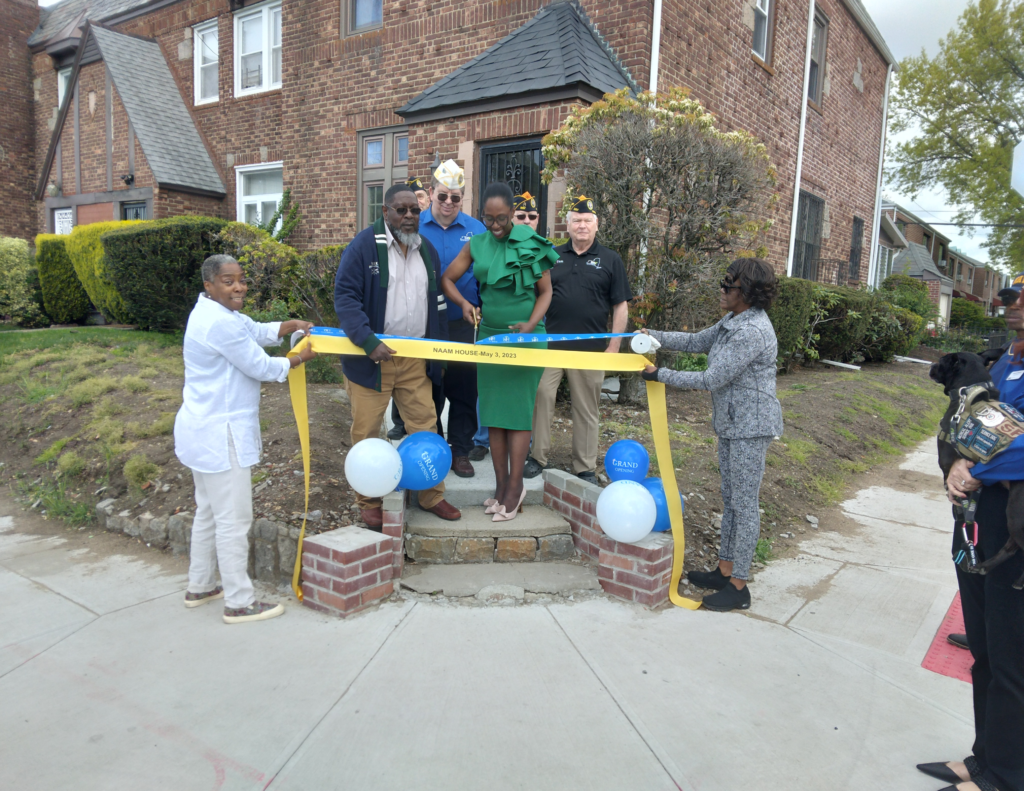On a broad, airy street in the Jamaica section of Queens, New York City, disabled and unhoused veterans in and around the Big Apple gained a new place to call home, as NAAM House held a Grand opening of its Veterans’ Residence on May 3. Led by the nonprofit’s founder, Lois-Lachelle-Migkins, the official ribbon-cutting ceremony was attended by allies, representatives from partnering organizations and agencies, and other dignitaries. The remodeled multi-bedroom house, located close to the St. Albans (Queens) VA Medical Center, public transit, and local shops, joins the existing NAAM House residence on Staten Island. Both will serve as safe, affirming spaces for unhoused veterans, and those with service-connected disabilities, in NAAM’s role as an an “adjustment service provider”, according to Ms. Migkins, an Army veteran.

With the number of homeless veterans in NYC reaching new highs, programs like those offered by NAAM and its partner charities is in high demand. “We are fortunate to have these groups assisting us in our work,” Ms. Migkins acknowledges, “because being an available resource for our veterans is always the goal.” On hand for the dedication of NAAM’s new residence were Dr. Remolia Simpson, founder of My Brother’s House, which also houses undomiciled veterans, Paul Nagle, executive director of Stonewall CDC, an organization that helps shelter LGBTQ+ senior veterans, Carter Ward, CEO of Hoshiah 7, serving formerly incarcerated women and veterans, representatives of the National Alliance On Mental illness (NAMI), and members of Disabled American Veterans (DAV) Department Of New York and their Commander. “We’re excited to be working with NAAM,” said Dr. Simpson, “and we’re looking forward to a mutually beneficial partnership.”
One of the bedrooms in the Jamaica home is dedicated to the memory of Army Staff Sgt. Carson Morris, a war veteran whose life and service played a significant role in Ms. Migkins’ life. Motivated by her own experiences struggling with service-connected disability, Ms. Migkins says NAAM will fill gaps in access to care and housing faced by many men and women who wore our country’s uniform. “Veterans who have service-connected disabilities often don’t get the help they need to survive after they leave the service,” she observes. “We are trying to rectify that through the work NAAM does every day.”
